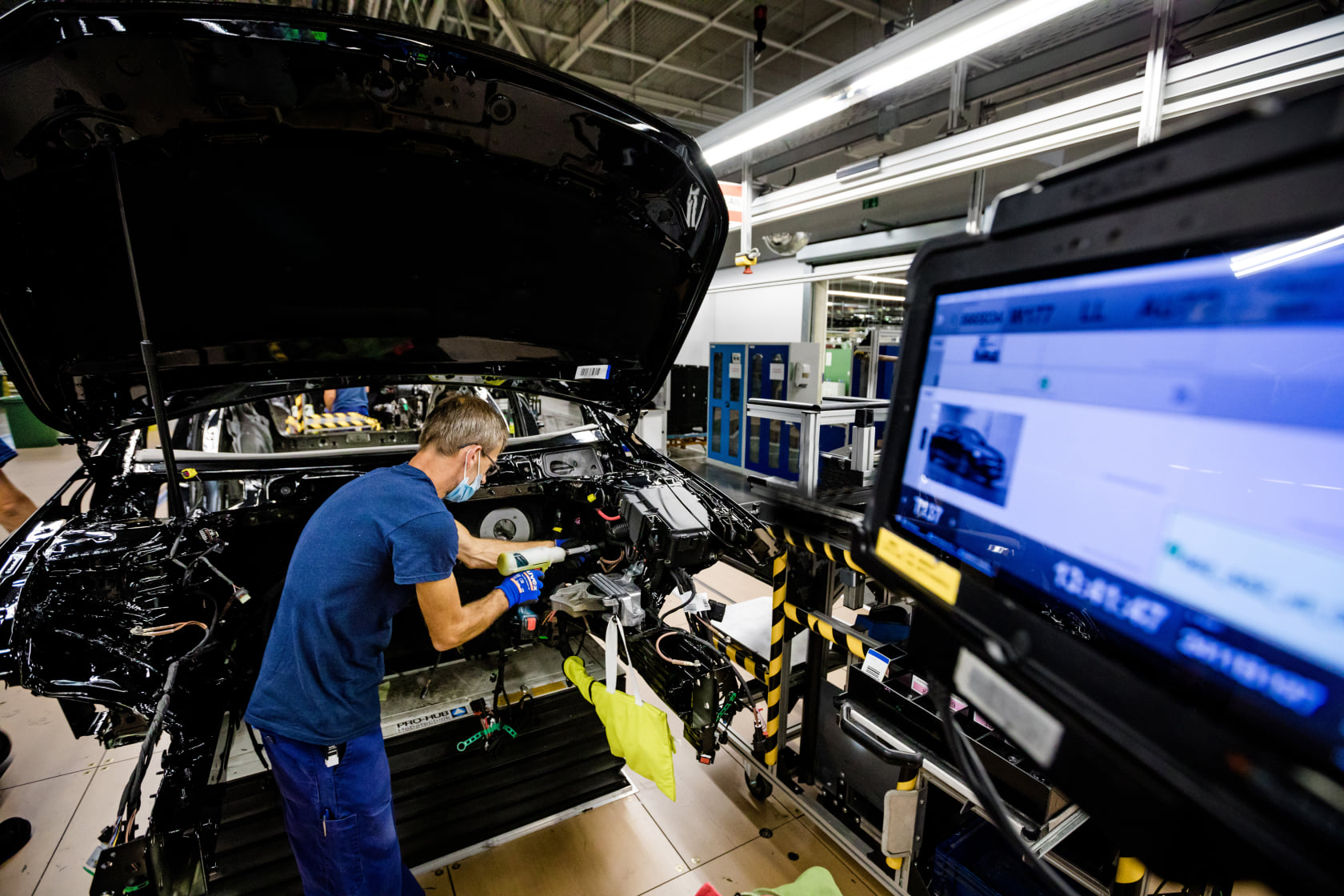
The Prime Minister believes that the Hungarian economic situation is favorable for German automotive companies.Continue reading

Swiss automotive multinational company Feintool has announced the closure of its plant in Baden-Württemberg, Germany, and the relocation of its production to Tokod, in northern Hungary. The move is expected to enhance cost efficiency, saving the company approximately EUR 16 million annually. However, it also results in the loss of 200 jobs in Germany, raising concerns about the country’s diminishing appeal as a manufacturing hub.
Feintool cited several reasons for its decision, including high energy costs, a weak economy, and uncertainties surrounding Germany’s electromobility policies, writes Világgazdaság. The decision highlights the challenges facing the German automotive industry, which is under pressure from declining demand for electric vehicles, rising competition from Chinese manufacturers, and escalating operational costs.
Automotive expert Ferdinand Dudenhöffer called Feintool’s departure a warning sign for Germany. “Feintool’s decision sends out the message that Germany is becoming less attractive for foreign companies. If we do not act in time, more jobs and companies could leave the country,” Dudenhöffer told the Berliner Zeitung. He stressed the need for a clear strategy to restore Germany’s economic competitiveness and prevent long-term economic decline.
Feintool’s new location in Tokod offers the company more favorable operating conditions.
Established in 1996, Feintool System Parts Tokod specializes in metalworking and powder metallurgy. Despite closing last year with a net turnover of HUF 26.1 billion (EUR 63.6 million) and a loss of HUF 382.2 million (EUR 932,305) in after-tax profit, the Tokod facility—employing 357 people—is expected to benefit significantly from the consolidation of production.
Hungary’s competitive advantages, including lower energy costs, a more supportive economic environment, and proximity to growing automotive markets in Central and Eastern Europe, have made it an increasingly attractive destination for manufacturers. The relocation reflects a broader trend of companies seeking cost-effective production bases outside of Western Europe.
The challenges facing Germany’s car industry extend beyond Feintool. German automakers such as Volkswagen, BMW, and Mercedes are struggling with declining demand for electric vehicles and intense competition from Chinese manufacturers offering lower-priced, technologically advanced models. Additionally, the German government’s policies on electromobility have drawn criticism for lacking a cohesive strategy, further exacerbating the industry’s difficulties.
A September report by the German Institute for Economic Research (Institut der Deutschen Wirtschaft) highlighted a significant shift in the global automotive industry. Since the turn of the millennium, Asia, particularly China, has emerged as the dominant region for automotive production and sales. In 2023, almost 60% of the world’s vehicles were produced, and nearly 50% were sold in Asia, underscoring the region’s growing influence.
Feintool’s departure serves as a wake-up call for German policymakers to address the structural issues facing the automotive sector. Without decisive action, experts warn that Germany risks losing more businesses and jobs, further weakening its industrial base.
Meanwhile, Hungary’s success in attracting Feintool underscores the growing importance of Central and Eastern Europe in the global automotive supply chain.
Via Világgazdaság; Featured image via Facebook/Mercedes-Benz Gyár Kecskemét